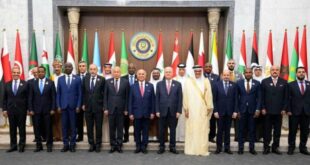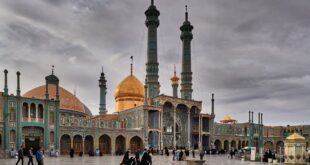UNITED NATIONS (Reuters) — The United States was likely to call a UN vote on Tuesday to impose sanctions on four Sudanese accused of war crimes in Darfur, despite opposition from China and Russia, a US official said. The sanctions, a travel ban and a freeze on assets abroad, would be the first adopted against individuals involved in the Darfur conflict. They were authorised by the UN Security Council in March 2005 against those who thwart peace efforts, violate human rights or conduct military flights over Darfur.
“We very well could vote,” said Richard Grenell, spokesman for the US Mission to the United Nations.
Russia and China believe the sanctions could interfere with the two-year-old Darfur peace talks between the Khartoum government and two rebels groups, conducted in Abuja, Nigeria.
To ease the concerns of African nations, the Security Council expects to approve at the same time a Tanzanian-drafted statement supporting the Abuja talks. Africa Union mediators have set April 30 as a deadline for a new cease-fire deal.
Both Russia and China, whose envoys said they still had to receive instructions, abstained on the March 2005 resolution authorising the sanctions and may do so again — or use their veto power to kill the measure. Voting with them will be Qatar, the only Arab member of the 15-nation council.
“My concern is that this draft resolution proposed by the United States might in a way have some negative implications for the negotiations in Abuja,” China’s UN ambassador, Wang Guangya, told reporters on Monday.
China exploits oil and supplies weapons to Sudan. But Wang contended Beijing was consistent in opposing sanctions in general and not because of its economic interests. The Darfur conflict erupted in 2003 when mostly non-Arab tribes took up arms over land and water resources, accusing the Arab-dominated government of neglect. In turn, the government is accused of arming mainly Arab militia, known as Janjaweed, who began a campaign of murder, rape, arson and plunder that drove more than two million villagers into squalid camps in Darfur and neighbouring Chad.
Khartoum denies responsibility. Four men are named in the resolution, according to a whittled-down list that Britain drafted. They are:
— Gaffar Mohammad Al Hassan, former commander of the Sudanese air force’s western region. Council diplomats said he had direct operational command of Sudan’s army in Darfur from 2004-2006. He is said to have coordinated operations between government forces and the Janjaweed that resulted in scores of attacks on non-Arab villages. He also supplied weapons to pro-government militia.
• Sheikh Musa Hilal, chief of the Jalul tribe in North Darfur, the region’s largest Arab tribe. He is a Janjaweed leader the diplomats say is behind some of the worst atrocities. His militia is blamed for storming countless villages, raping, robbing civilians and burning homes. He was jailed in 1997 for killing 17 people, the envoys say.
• Adam Yacub Shant, a commander in the rebel Sudan Liberation Army. The diplomats say he violated a Darfur ceasefire in July 2005 by ordering his soldiers to attack government forces. Three soldiers were killed.
• Gabril Abdul Kareem Badri, a rebel commander in the National Movement for Reform and Development. Diplomats say he kidnapped members of the African Union force in Darfur in October and in November threatened to shoot down AU helicopters.
Sponsoring the resolution are the United States, Britain, Argentina, Denmark, France, Japan, Peru and Slovakia.
 Eurasia Press & News
Eurasia Press & News



